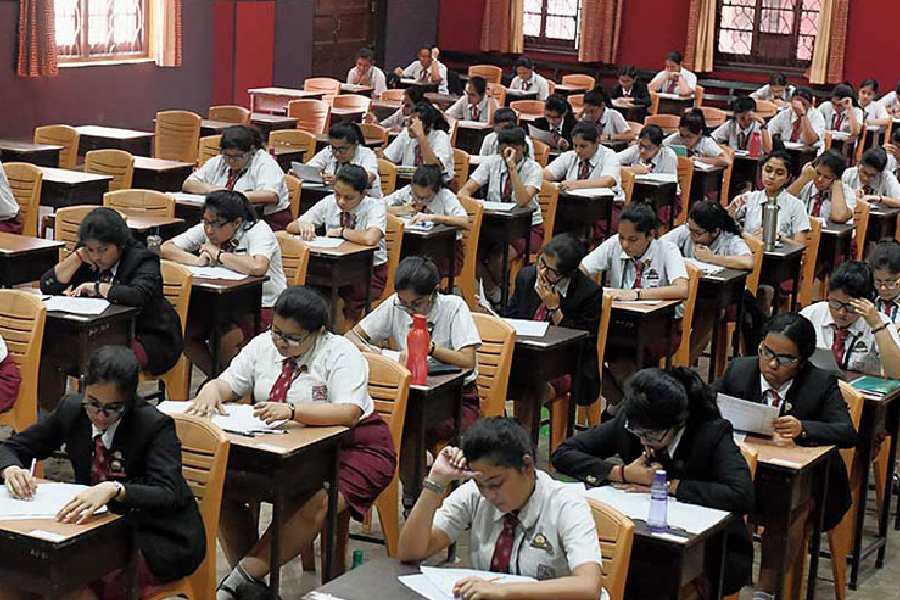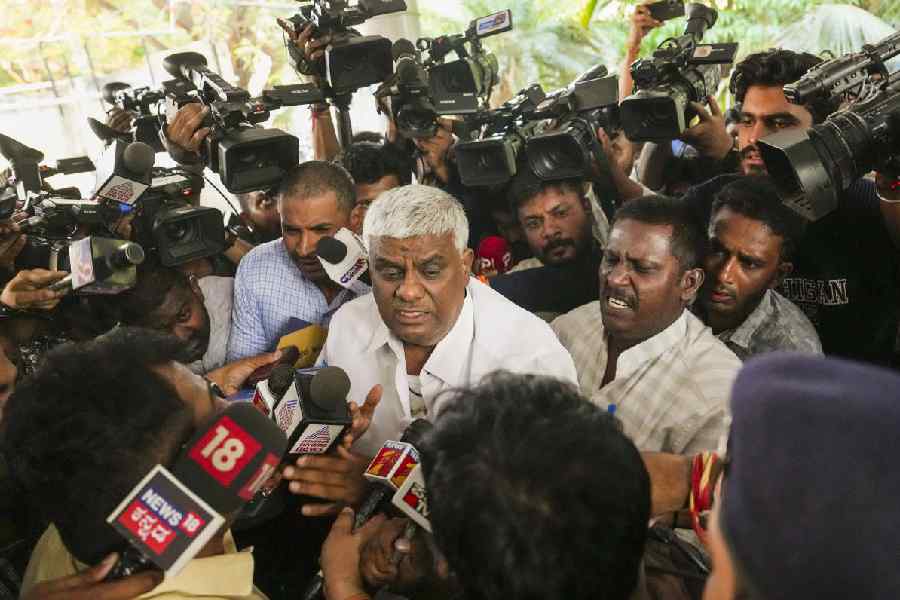The CBSE, the country’s largest education board with 28,000 affiliated schools, has found two-thirds of a sample of schools it inspected infested with “dummy students”.
Dummy students are Class XI and XII pupils who spend the entire two-year session attending coaching institutes while remaining enrolled in a school, which fabricates their attendance so they can sit their higher secondary board exams.
Educationists have blamed the racket on the advent of national-level entrance tests across streams and disciplines, which have jacked up the demand for coaching while devaluing board marks.
Of the 34 schools the CBSE inspected across multiple states on December 21 last year, 23 were found to have dummy students on their rolls, sources said.
They said the board had been tipped off about some of the schools it inspected while the rest were picked at random, and therefore the results cannot be directly extrapolated across all CBSE schools.
The principal of a private school in Delhi who was part of the inspection team for a particular school said the institution had only 60 students each in Classes IX and X, but the number skyrocketed to 500 each in Classes XI and XII.
Yet, the inspection team found attendance to be zero in Class XI and about 50 in Class XII, she said.
The CBSE has issued showcause notices to the 23 schools. According to the CBSE’s rules, a student needs at least 75 per cent attendance to take the board exams.
The principal who spoke to this newspaper said dummy students get admitted to coaching institutes to prepare for the various competitive exams. The coaching institutes convince the parents that they would take care of the higher secondary syllabus, too.
They persuade the parents to enrol their children in certain schools with which these coaching institutes have tie-ups, saying the children would not be required to attend classes there but would be allowed to sit their board exams. The schools make a nice packet without having to invest in infrastructure or additional teachers.
“Toppers from regular schools are securing transfer to dummy schools. They don’t focus on the Class XII board exams but on the Joint Entrance Examination, National Entrance-cum-Eligibility Test and the Common University Entrance Test,” the school principal said.
She said this was because the national-level entrance tests had turned the board exams into mere qualifying exams, which means the student has to just pass them to be eligible for college admission, based solely on their marks in the competitive exams.
“I feel some weightage should be given to the Class XII board scores during admission,” she said, suggesting a possible way of curbing the dummy student racket.
While the CUET is mandatory for admission to general courses at the central universities, the NEET is the sole entrance exam for medical and dental college seats. The JEE is the doorway to the most prestigious engineering colleges.
Education activist Prince Gajendra Babu said: “Earlier, students secured college admission (particularly in the general courses) based on their board results. Now, at the coaching centres, children are trained merely to crack examinations. Learning has become a casualty,” he said.
Usha Ram, former principal of the Laxman Public School, said the parents deserved the largest share of the blame for the trend.
“I have seen schools allowing coaching centres to run from their (schools’) premises,” she said. “What is important is the holistic development of the children. A focus on mere coaching does not help.”










